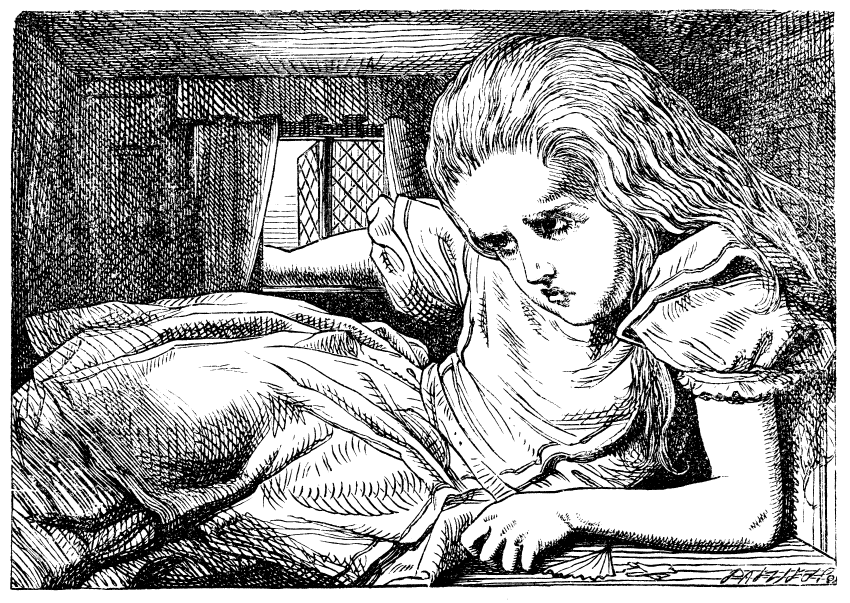People who suffer from delusions of any kind surely find them both intrusive and convincing, even though the definition of a delusion includes the fact that they exist outside of reality. For some, delusions come and go and can be treated with therapies of one kind or another. For others, they’re completely debilitating and incurable, leaving the sufferer to exist inside them rather than in the real world.
Here are 10 of the strangest delusional disorders that we know about. But the brain is a deep, dark place, so there are sure to be more lurking about.
10. ‘Alice in Wonderland’ Syndrome
This one (as you might guess) affects how a person perceives both space and time – they might see objects as either smaller or larger than they actually are, and they might also struggle to judge time.
Interestingly, it’s not always related to a mental illness, and is sometimes connected to migraines, which Lewis Carroll (the author of Alice in Wonderland) suffered from, as well.
9. Jerusalem Syndrome
Approximately 40 people are hospitalized every year after becoming obsessed with Jerusalem during their visit. Symptoms include anxiety, toga-wearing, singing of hymns, shouting Bible verses, or giving poor sermons in public.
Most, if not all, sufferers will be cured upon returning home.
8. Clinical Lycanthropy
People affected by this believe they’re turning into an animal – and not just wolves, either. Published cases of this rare disorder including people thinking they’re going to become a frog, cat, horse, bird, hyena, or even a bee.

Photo Credit: Public Domain
7. Cotard’s Syndrome
A delusion that often coincides with schizophrenia, these people believe that they’re dead, do not exist, or have lost their internal organs. It’s difficult to convince them they’re still alive, which results in them being withdrawn and failing to take care of themselves properly.
6. Othello Syndrome
These people believe that their parter is cheating on them despite a lack of evidence. Unlike your run-of-the-mill jealousy, these people can find themselves exhibiting obsessive behavior like stalking, interrogating their partner, and even violence.
5. Reduplicative Paramnesia
This one shows up often in soldiers who have sustained brain damage, and it makes them believe a place has been duplicated or moved. One example is that the hospital where they’re recovering has been moved to their hometown.

Photo Credit: Public Domain
4. Capgras Delusion
This one affects how a person sees the friends and family around them, convincing the sufferer that one of their close acquaintances has been replaced by an imposter. It can be found in schizophrenic patients, but also arises in patients suffering from brain damage or dementia.
3. Ekbom’s Syndrome
It’s sort of like a hypochondria, in which the sufferer believes their body has been infested with parasites. Nightmarish, right? People with this syndrome will often contact pest control or a dermatologist instead of a psychiatrist.
2. Subjective Doubles Syndrome
These people believe that they’ve got a doppleganger who looks just like them but leads a completely different life. The sufferers, often diagnosed with schizophrenia or bipolar disorder, can become enraged at the idea that someone has stolen their likeness, a complication that can sometimes lead to violent attacks.
1. Thought Insertion
Imagine how disturbing it would be to believe that your thoughts weren’t yours, but instead were being put in your head by an unknown (or occasionally known) entity… It would be pretty hard to shake the feeling that you weren’t alone in your own head.
(h/t: Spring.org)
We know you can choose a lot of sites to read, but we want you to know that we’re thankful you chose Did You Know.
You rock! Thanks for reading!






